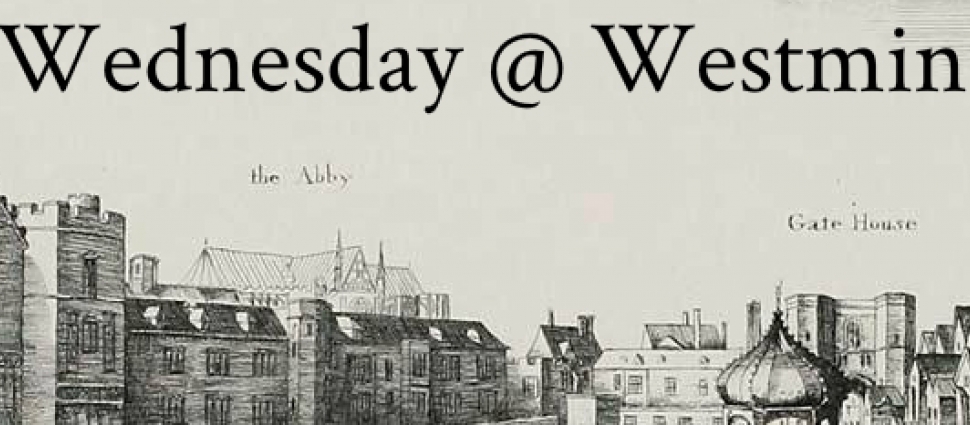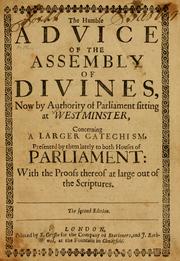Wednesday @ Westminster: Are There More Gods Than One?

Mar 23, 2016
 A quick web search reveals surveys that show as many as 97% of Americans professing to believe in God. Impressive, isn’t it? But do 97% of Americans actually believe in the God who says, “You shall have no other gods before me?” (Ex. 20:3) What does it mean to say that 97% of Americans believe in “God?” This same survey goes on to say that of that 97%, 4% believe everyone is God, 3% say there are many gods, 7% believe that God is the total realization of human potential, and 11% believe that God is the state of higher consciousness which we can achieve. Yes, we Americans are “in every way…very religious” (Acts 17:22), and I'm sure no matter whcih country you are reading this from you can sympathize. As someone once said, “In the beginning God created man in his image, and man has been returning the favor ever since.”
A quick web search reveals surveys that show as many as 97% of Americans professing to believe in God. Impressive, isn’t it? But do 97% of Americans actually believe in the God who says, “You shall have no other gods before me?” (Ex. 20:3) What does it mean to say that 97% of Americans believe in “God?” This same survey goes on to say that of that 97%, 4% believe everyone is God, 3% say there are many gods, 7% believe that God is the total realization of human potential, and 11% believe that God is the state of higher consciousness which we can achieve. Yes, we Americans are “in every way…very religious” (Acts 17:22), and I'm sure no matter whcih country you are reading this from you can sympathize. As someone once said, “In the beginning God created man in his image, and man has been returning the favor ever since.” Thankfully we have the truth of God’s Word in such a religious landscape as we find ourselves. That truth concerning God is summarized for us in the Westminster Larger Catechism, which says:
Are there more Gods than one?There is but one only, the living and true God. (Q&A 8)
We confess to believe in one God. Let us meditate upon that to engage our minds with truth, to enflame our hearts with love, and to enable our hands to serve him and our neighbor.
The Context of this Confession
The first point I want us to meditate on briefly is the context of this confession that there is one God. I have already mentioned our context. But it is important for us to recognize that our context with its religious zeal without knowledge is no different, no better, or no worse than the context in which our forefathers found themselves. For example, when the Israelites left Egypt and prepared to enter Canaan, they left a land filled with idols and went into a land overflowing with them. When the Lord instructed them to learn this confession, “The Lord our God, the Lord is one” (Deut. 6:4), it was in a similar context to us. Our confession, then, is always going to be contra mundum, against the world. This is why the Lord exhorted his people a little later to fear, to serve, and to hold fast, or, as the King James says, “cleave,” to him alone (Deut. 10:20). Our confession leads us to action.
The Catholicity of this Confession
The second brief point to meditate on briefly is the catholicity of this confession that there is one God. Now I know that some of you may cringe at the word “catholic” because of your bad experience in the Roman Catholic Church, but this word is one that we need to embrace. In fact, the ancient Greek word καθολικός (katholikos) is used to speak of something that is worldwide or universal. When we confess that there is only one God we join the chorus of the universal Christian church in heaven and on earth. We confess with our ancient brothers and sisters, “I believe in God” (Apostles’ Creed), and, “I believe in one God” (Nicene Creed). But our catholicity is even more ancient than the church fathers; we confess the one true God along with our Israelite forefathers and foremothers (Deut. 6:1–9).
In our day of so many religions, philosophies, and movements that seem to make the mass of humanity walk around in chaos, our confession of the one God places our feet in orderly march of biblical and ecclesiastical history. In our day in which “everyone [does] what [is] right in [their] own eyes” (Judg. 21:25) theologically speaking, our confession of the one God grants us confidence and safety that we belong to an international movement. Like the feeling we get when we begin to research and map out our family tree, making this confession fills us with a sense of transcendence that we belong to something bigger than ourselves as members of the true church.
The Content of this Confession
Finally, meditate with me on the content of this confession.
God is One
First, the Lord our God is one (Deut. 6:4). We are monotheists, that is, we believe in one God, because this is how God reveals himself in his Word. In both the Old and New Testament Scriptures we read this. The prophet Isaiah once spoke on behalf of the Lord, saying, “I am God, and there is no other; I am God, and there is none like me” (Isa. 46:9). The apostle Paul once said to Christians amidst the idolatrous city of Corinth: “Therefore, as to the eating of food offered to idols, we know that an idol has no real existence, and that “there is but one God” (1 Cor. 8:4).
God is Living and True
Second, the Lord our God is living and true (1 Thes. 1:9). This is a way of saying that God is not an idol. He is not a dead piece of wood or metal, or even an imagination in your mind. Instead, our God is the true God above all the false gods of the nations. And he is alive. Moses impressed this upon our fathers in the wilderness when he said, “Did any people ever hear the voice of a god speaking out of the midst of the fire, as you have heard, and still live? Or has any god ever attempted to go and take a nation for himself from the midst of another nation, by trials, by signs, by wonders, and by war, by a mighty hand and an outstretched arm, and by great deeds of terror, all of which the Lord your God did for you in Egypt before your eyes?” (Deut. 4:33–34) Because he is alive he speaks and he acts to save his people. And because he alone is alive, he is true: “To you it was shown, that you might know that the Lord is God; there is no other besides him…know therefore today, and lay it to your heart, that the Lord is God in heaven above and on the earth beneath; there is no other.” (Deut. 4:35, 39)
What does mean for our relationship to this one, living and true God? Listen to how Paul explained the significance to this to the Thessalonicans: “…you turned to God from idols to serve the living and true God” (1 Thes. 1:9). Our confession with our mouths of the oneness of God means that we have turned away from idols. This is what we call conversion. We have repented of our idolatry and have embraced in faith the one true God. And as those who still have the “body of death” of our sinful nature clinging to us (Rom. 7:24), our Christian life must still be characterized by a lively repentance and faith. We do have a mere formal adherence to a family religion, in which we merely go through the motions. We have turned, and we continually need to turn. We have believed, and we continually need to believe.
What do we need to turn from continually? We must continue to turn from serving idols and turn to and serve the living and true God. What are the idols we need to turn from? Since we may not have household gods, let me speak to the heart of idolatry. Are you addicted to entertainment? What do you value most: the divine service or your couch as you watch football! Are you addicted to convenience? Which do you prefer: going along with the attitudes and actions of your crowd of friends or the Lord and his Word? Are you addicted to slothfulness? Would you much rather stay in your proverbial corner or serve God by volunteering to serve the church in its various needs? And closest to home, are you addicted to the idol of yourself? Of course you are. You and I are by nature selfish. We want our “me time,” we want our “man cave,” we want it our way, and we want it all and we want it now. The one true God has once and for all turned us away from the guilt of our idolatry. Because he is true, he promises that when we continually turn to him and cleave to him, he will free us from the pollution of our idolatry and “give life to [our] mortal bodies through his Spirit who dwells in you,” because this same Spirit raised up our Lord Jesus Christ to life.





